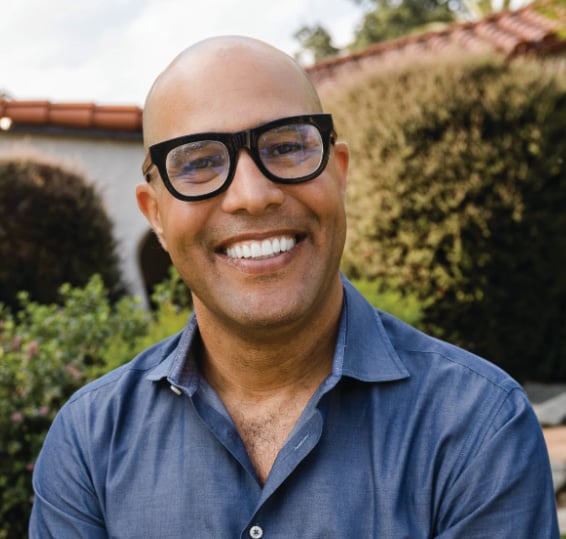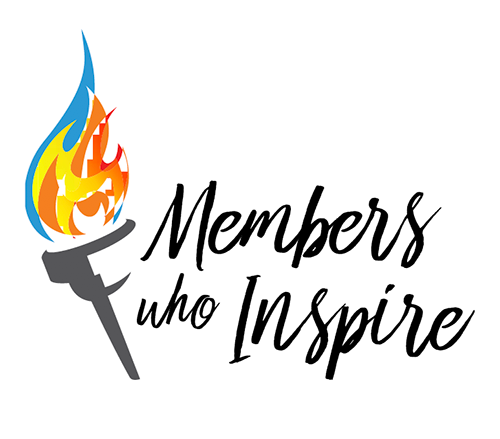GC Fatheree III uses real estate law skills for history-making pro bono cases

GC Fatheree is the founder of ORO Impact, which helps employers provide down payment assistance programs to their employee. Photo by Darius Carter.
When GC Fatheree III decided to take a BigLaw job in 2008, he also decided he wouldn’t stay long.
He planned to spend two or three years honing his analytical and writing skills and learning as much as he could from other lawyers. If at the end of that period he wasn’t spending a substantial amount of his time on issues that mattered to him, he would move on to something else.
“What was amazing was it didn’t take three years,” says Fatheree, who spent nearly 10 years in the real estate group at Skadden, Arps, Slate, Meagher & Flom before becoming a partner at Munger, Tolles & Olson and Sidley Austin in Los Angeles. “I figured out early on that BigLaw can be—for the right person, for someone who is committed and motivated—a very good platform to support a lot of the causes that were important to me and my family.”
Armed with his legal training and firms’ resources, Fatheree built an all-encompassing pro bono practice. He invested thousands of hours in his cases, which included securing reparations for survivors of the Holocaust and successfully advocating for public school students with disabilities at the California Supreme Court. He also worked for nearly 15 years with the Debbie Allen Dance Academy, including on the nonprofit’s development of a state-of-the-art facility in central Los Angeles.
In 2020, Fatheree began what became his most notable pro bono case, representing members of a Black family in their quest to secure “Bruce’s Beach,” a stretch of oceanfront property that was taken from their ancestors nearly a century earlier by officials in Los Angeles County who cited eminent domain. It was unprecedented because, according to Fatheree, stolen property had never been returned to a Black family or community in the United States.
He still remembers his first conversation with the descendants of Charles and Willa Bruce, who purchased the land in 1912.
“I said something to the effect of, ‘I can’t guarantee I’ll be successful in getting this land back for your family. But what I can promise you is, I don’t think you’ll find another attorney who shares my personal passion and commitment for this issue or who has my professional training and experience to help your family,’” Fatheree says. “I really felt like I was being called to this opportunity.”

Focus on education
Fatheree grew up in Chino, which was then a rural city in Southern California.
He played Little League Baseball, raised sheep in 4-H and joined a youth group. He says being a lawyer never crossed his mind because many adults he knew worked at the local prison or on dairy farms.
While attending public high school, Fatheree met passionate teachers who encouraged his intellectual curiosity and helped change his trajectory. He didn’t know anyone from Chino who went to Harvard University, but when it became an option for college, he applied and was accepted.
He studied government and religion, and after graduating in 1997 worked as a management consultant in New York City. He later helped launch an e-government internet company in New York City and Silicon Valley before returning to consulting with Mc-Kinsey & Co. in Los Angeles in 2001.
After the birth of their first son, Fatheree and his wife discovered the infant had an intractable seizure disorder and often had more than 100 seizures a day. He says his consulting career quickly became “fundamentally incompatible” with the need to prioritize his family.
“It wasn’t just logistically incompatible,” Fatheree says. “What was going on with my son really made me take a step back and reevaluate how I was spending and investing my time.”
Fatheree thought often about the important role education played in his life. In 2004, he helped start and became the chief operating officer of the California Charter Schools Association, which focuses on building public schools in neighborhoods with limited access to quality education.
At the same time, Fatheree decided to further his own education. He enrolled in the evening program at Loyola Marymount University’s Loyola Law School, largely because of the positive experiences he had with lawyers in his various roles.
“I really admired and respected the way they communicated, they analyzed and how they could carry a room,” Fatheree says. “I thought that would be really good for me in this new career, the ability to pick up those skills.”
Fatheree wasn’t sure where or for how long he would practice—until he realized his penchant for advising on complex commercial real estate transactions and handling high-impact pro bono matters.
Making an impact
Fatheree, a longtime ABA member, discovered the opportunity to help return Bruce’s Beach to its rightful owners after working on another historically significant case.
In 2019, when Fatheree was a partner at Munger Tolles, he learned that the entire photography archive from iconic magazines EBONY and JET was being auctioned as part of Johnson Publishing Co.’s bankruptcy proceedings. The archive included more than 4 million prints and negatives and, according to the New York Times, it was the most significant collection of photography depicting African American life in the 20th century.
One of Fatheree’s partners had a relationship with the J. Paul Getty Trust, a cultural and philanthropic organization that wanted to purchase the archive. Fatheree quickly got involved, and within a matter of days was leading the team representing Getty in the $30 million acquisition. Getty had partnered with several foundations in the deal and agreed to donate the archive to the Smithsonian’s National Museum of African American History and Culture and the Getty Research Institute.
“That experience is significant to me because it demonstrates the importance of being prepared for opportunities that present themselves,” Fatheree says. “People talk a lot about being in the right place at the right time, but I think there is another piece to that. It’s being in the right place at the right time with the right skills.”
Fatheree later heard from a friend at the Los Angeles Times who had read about his work with the archives. She told him she was sending him another article about Bruce’s Beach and encouraged him to get involved in that case too.
After meeting the Bruce family, Fatheree led a team that advised on California state legislation that was designed to pave the way for the County of Los Angeles to return Bruce’s Beach to them. Gov. Gavin Newsom signed the bill in September 2021, and a few months later, Fatheree moved to Sidley but continued working on the case. He and his colleagues negotiated the real estate terms with the county, advised on potential tax issues connected to the property transfer and defended the Bruce family in a lawsuit aimed at preventing the property’s return.
In June 2022, the County of Los Angeles Board of Supervisors voted unanimously to transfer ownership of Bruce’s Beach to the Bruce family.
“That case really was the perfect combination of my passion, commitment and dedication,” Fatheree says. “It was seeking justice and equity in the Black community, and then marrying that with my rigorous professional training as a real estate lawyer.”
Stacy Horth-Neubert, who worked with Fatheree at both Skadden and Sidley, shares his passion for pro bono. She says it’s his deeply felt belief that he has a moral and ethical obligation to help others that makes him a special lawyer.
“He and I share the view that our purpose here on earth has to be to leave it a better place,” says Horth-Neubert, now executive director of the Harriett Buhai Center for Family Law in Los Angeles.
“He also has a very deep love of people,” she adds. “My husband and I say he and his wife are ‘collectors of good people,’ meaning they surround themselves with people from various career paths but all of whom are … trying to make a mark for the better.”
Fatheree, who lives with his wife and two kids in Los Angeles, left Sidley in June to start ORO Impact.
After Bruce’s Beach, Fatheree heard from more Black families with stories of land loss. He understands property ownership is key to creating wealth, and now through ORO Impact, he helps employers provide down payment assistance programs to their employees.
“It was time to take the skills I had developed for 16 years as an attorney and try to do something else that could really impact people’s lives,” Fatheree says.
Members Who Inspire is an ABA Journal series profiling exceptional ABA members. If you know members who do unique and important work, you can nominate them for this series by emailing [email protected].
This story was originally published in the February-March 2024 issue of the ABA Journal under the headline: “Property Protection: GC Fatheree III uses real estate law skills for history-making pro bono cases.”



